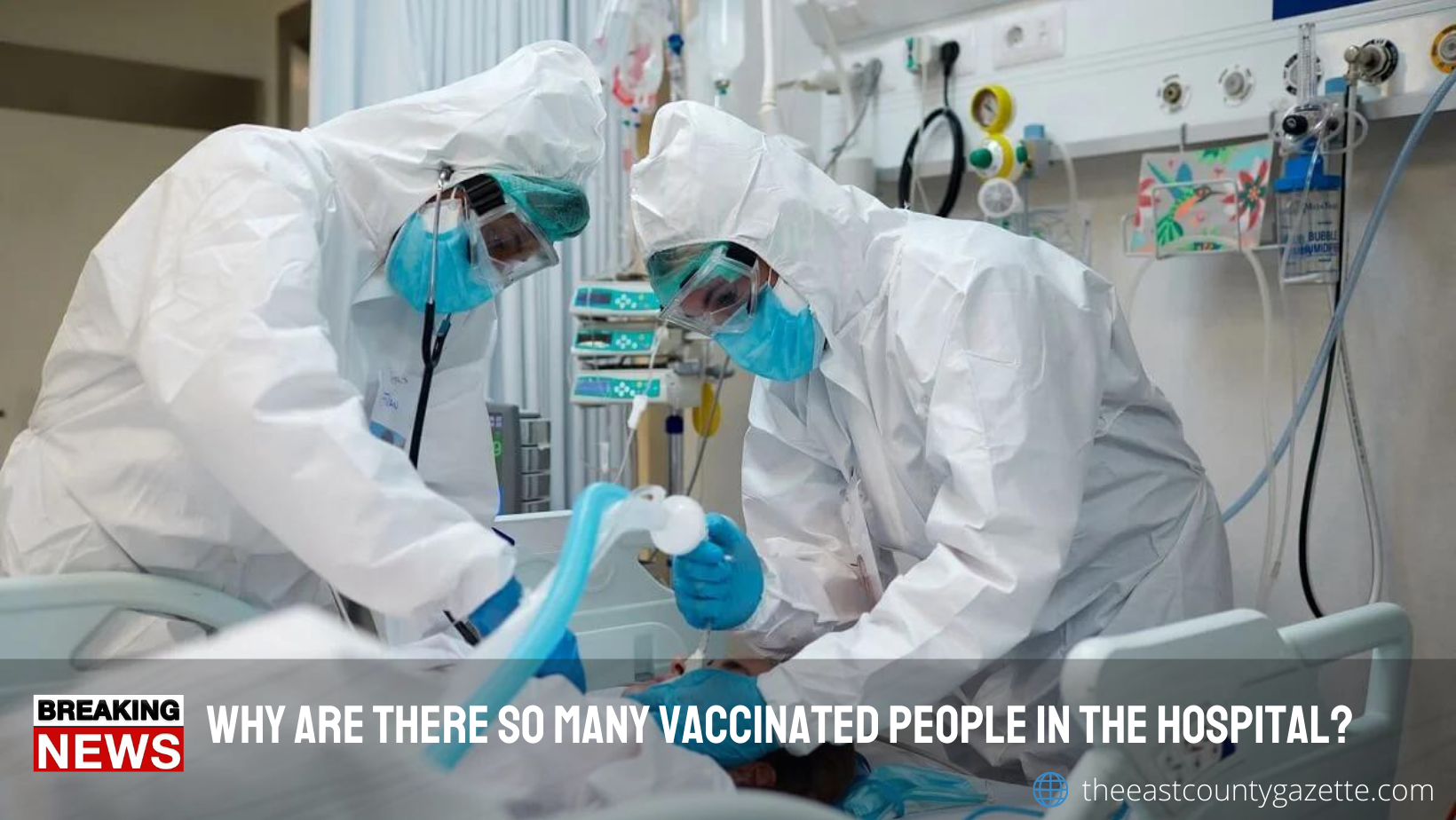Presently, it looks like there has been an increase in COVID-19 hospitalizations even though they are fully vaccinated.
This is particularly evident in Israel, where there are more vaccinated than unvaccinated people in hospitals.
It may be alarming to hear there are more vaccinated people than unvaccinated people in hospitals – but it’s actually a good thing.
The bottom line is, no vaccine is totally perfect and of course, you can still get sick. There is also a chance that you will need hospital care even though you are fully vaccinated.
It all boils down to the size of the vaccinated population.
To understand why this happens, we need to look at vaccine efficacy within the whole population, not just the people in the hospital.
We know that COVID-19 vaccines reduce your chances of serious illness by around 80%.
In trials, 80% vaccine efficacy means that 80% of people who contracted COVID-19 were unvaccinated, and 20% were vaccinated.
If you’re looking at a population of 100 people, 50 vaccinated and 50 unvaccinated. Of these, 40 people had COVID-19.
Recommended Read: Pfizer Booster Shots: What Are Its Side Effects?
If we look at the ratios in this hypothetical example, we see that 8/40 infected people are vaccinated and 32/40 are unvaccinated. It’s clear to see that the vaccinated people fared better – in fact, that would be a vaccine efficacy of 80% (1–8/40 = 80%).
However, the ratios change as vaccination rates increase – they are no longer even.
Say, instead, that there are 80 vaccinated people of our hypothetical population of 100 and only 20 unvaccinated. In this scenario, there are 29 people with COVID-19.
Let’s zoom in – consider that 16/29 people are vaccinated, but only 13 are unvaccinated. It seems like more vaccinated people are ending up with the virus, but that number is out of context.
It also means that the percentage of vaccinated sick people (16/80 = 20%) is much lower than the percentage of unvaccinated sick people (13/20 = 65%).
This is the same principle that occurs as Australia’s vaccinated population increases. With higher vaccination rates, the ratio of vaccinated to unvaccinated people in hospitals will become closer, but the rate of seriously ill people in the whole population will decrease.
Update: With the efficacy of Covid-19 vaccines fading away, FDA has approved booster shots for the individuals who fall under this criteria:
- Individuals 65 years of age and older;
- Individuals 18 through 64 years of age at high risk of severe COVID-19; and
- Individuals 18 through 64 years of age whose frequent institutional or occupational exposure to SARS-CoV-2 puts them at high risk of serious complications of COVID-19 including severe COVID-19.
P.S. This approval is valid only for the Pfizer-BioNTech COVID-19 Vaccine in the US.
Based on these criteria, if you’re eligible to receive the Pfizer booster shot, would you go ahead and get it?
Do let us know in the comments section given below.

